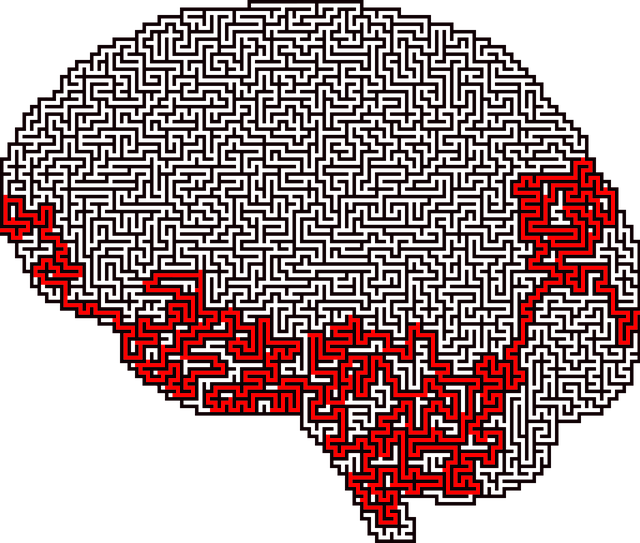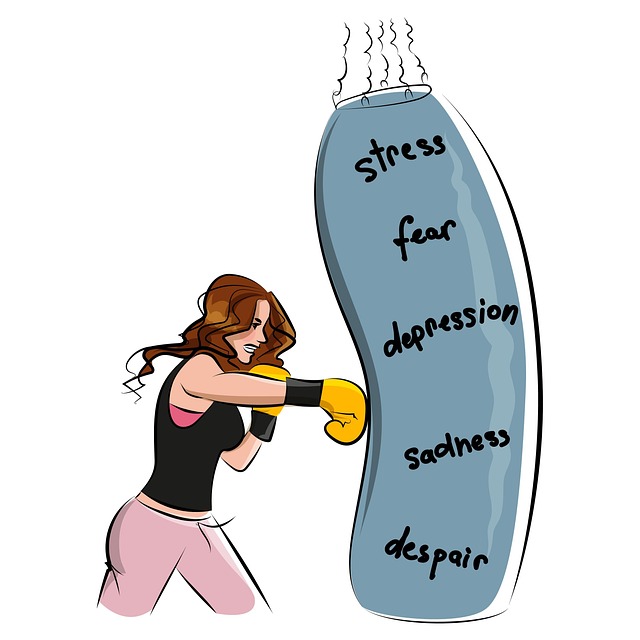Public awareness campaigns using creative media strategies and evidence-based approaches like Englewood Cognitive Behavioral Therapy (ECBT) significantly promote mental well-being. These campaigns break down stigma, encourage help-seeking behaviors, and normalize conversations about mental health. By highlighting ECBT's effectiveness in areas like self-esteem improvement and stress reduction, they empower individuals to manage their emotional resilience. Tailored messaging, interactive workshops, and online resources enhance engagement, fostering proactive mental health management. Evaluating campaign impact through KPIs like knowledge changes, stigma reduction, and increased help-seeking is crucial for refining future strategies and ensuring resources are allocated effectively to meet community needs.
Public awareness campaigns play a pivotal role in shaping societal behaviors and promoting public health. This article delves into the development of impactful initiatives, exploring their role, effectiveness, and lasting impact. We discuss strategies for creating engaging campaigns that resonate with diverse audiences. Furthermore, we examine the integration of evidence-based techniques, such as Englewood Cognitive Behavioral Therapy (E-CBT), to enhance campaign success. By understanding evaluation metrics, we can measure the efficacy of these efforts, ensuring resources are allocated wisely.
- Understanding Public Awareness Campaigns: Their Role and Impact
- Strategies for Effective Campaign Development: An Engaged Approach
- Incorporating Cognitive Behavioral Therapy (E-CBT) Techniques in Public Health Initiatives
- Measuring Success: Evaluation Metrics for Public Awareness Campaigns
Understanding Public Awareness Campaigns: Their Role and Impact

Public awareness campaigns play a pivotal role in shaping societal attitudes and behaviors, with far-reaching implications for mental health. These initiatives, designed to educate and engage communities, serve as powerful tools in promoting well-being and fostering positive change. By utilizing various media platforms and creative strategies, they can effectively communicate critical messages about mental health issues, breaking down stigma and encouraging help-seeking behaviors. For instance, campaigns focused on Englewood Cognitive Behavioral Therapy can highlight its efficacy in self-esteem improvement and stress reduction methods, empowering individuals to take control of their mental well-being.
The impact of these campaigns extends beyond immediate exposure; they contribute to long-term mental health awareness by normalizing conversations around sensitive topics. This shift in perspective can lead to earlier interventions and improved access to support services. Moreover, by targeting specific demographics or communities with tailored messages, campaigns can address unique challenges and promote resilience, ultimately enhancing the overall mental health landscape.
Strategies for Effective Campaign Development: An Engaged Approach

Public awareness campaigns are powerful tools for educating and engaging communities on various issues, including mental wellness and crisis intervention guidance. An effective campaign development strategy involves adopting an Englewood Cognitive Behavioral Therapy (ECBT) approach to foster active participation. This means creating content that not only informs but also empowers individuals to take charge of their mental health. By integrating ECBT principles, campaigns can encourage self-reflection, provide practical tools for stress reduction methods, and promote a proactive mindset.
A key aspect is tailoring the message to resonate with diverse audiences. Using relatable narratives and inclusive language ensures that the campaign reaches all segments of society. Additionally, incorporating interactive elements like workshops or online resources allows participants to actively engage with the material, enhancing learning and long-term impact. This interactive approach can be particularly beneficial in addressing mental health concerns, where a supportive and accessible environment encourages individuals to seek help and make positive changes in their lives.
Incorporating Cognitive Behavioral Therapy (E-CBT) Techniques in Public Health Initiatives

Incorporating Englewood Cognitive Behavioral Therapy (E-CBT) techniques into public health initiatives offers a powerful approach to promoting emotional well-being and enhancing overall community health. E-CBT leverages evidence-based strategies to address various mental health challenges, making it an effective tool for large-scale interventions. By integrating these techniques, public awareness campaigns can go beyond simple information dissemination and empower individuals with practical skills to manage stress, resolve conflicts, and improve their emotional resilience.
This methodical approach fosters sustainable behavioral changes by teaching individuals to recognize and alter negative thought patterns, thereby reducing the impact of stress and promoting better mental health outcomes. Moreover, E-CBT techniques can be easily scaled for delivery through online platforms and mobile applications, making them accessible to a broader audience. Organizations conducting Stress Management Workshops or initiating Conflict Resolution Techniques within communities can benefit from this approach, ultimately contributing to a healthier and more resilient population.
Measuring Success: Evaluation Metrics for Public Awareness Campaigns

Evaluating the success of public awareness campaigns is paramount to understanding their impact on communities and refining future strategies. In the context of mental health initiatives, such as Englewood Cognitive Behavioral Therapy (ECBT) therapy programs, assessment metrics should go beyond mere reach and engagement. Key performance indicators (KPIs) for ECBT-focused campaigns might include changes in public knowledge about mental health, stigma reduction, and increased help-seeking behaviors. For instance, surveys before and after campaign exposure can gauge shifts in attitudes and perceptions related to therapy and mental wellness.
Moreover, measuring the reach and depth of information dissemination is crucial. This involves tracking website traffic, social media engagement, and participation rates in associated Mental Health Education Programs Design. Incorporating practices like Mindfulness Meditation into these campaigns allows for evaluating not only awareness but also the potential adoption and benefits derived from such techniques. Ultimately, successful evaluation provides valuable insights to improve campaign design and ensure that resources are allocated effectively to address community mental health needs.
Public awareness campaigns, when designed with an engaged approach and evidence-based strategies like Englewood Cognitive Behavioral Therapy (E-CBT) techniques, can significantly shape public health outcomes. By focusing on measurable goals and utilizing appropriate evaluation metrics, these campaigns become powerful tools to drive behavior change and create lasting impact. Embracing innovative methods ensures that messages resonate, fostering a more informed and proactive society.














